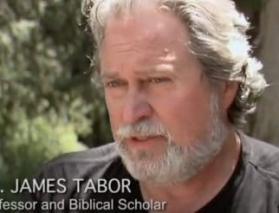The Old Testament has the expression “the God of heaven” twenty-one times. In six of these instances, this expression is preceded by God’s name YHWH/YHVH. It is translated in English versions, “the LORD, the God of heaven.” Thus, we can be pretty sure that in the other fifteen expressions that don’t have God’s name accompanying them, the authors meant that “the God of heaven” is YHWH/YHVH, which scholars usually translate Yahweh/Yehvah. (YHWH/YHVH is traditionally translated “LORD.” One issue is whether or not to treat the sixth letter of the Hebrew alphabet as a waw or a vav.)
In all of these twenty-one expressions of “the God of heaven,” the article is prefixed to the Hebrew word for “heaven,” thus hashamayim. Shamayim is like the Hebrew word for God/god, elohim, in that both have a plural ending but can be understood in either the singular or the plural. The determining factor for understanding whether elohim or shamayim is the singular or plural is usually their context. In the case of shamayim in the Hebrew Bible, I think it occasionally is difficult to tell from the context. If it can be understood in the plural, that means there are multiple heavens.
Ancient rabbis usually conceived of multiple heavens, usually three heavens or seven heavens; but some thought of ten heavens or more. The Apostle Paul relates an experience, which seems to have been his own, by saying modestly, “I know a person in Christ who fourteen years ago was caught up to the third heaven–whether in the body or out of the body I do not know; God knows–was caught up into Paradise and heard things that are not to be told, that no mortal is permitted to repeat” (2 Corinthians 12.2). Thus, this third heaven seems to be where God and his angels resided, and Paul calls it “the third heaven.”
When I was a Trinitarian for twenty-two years and I read about “God” or “the LORD” (=YHWH/YHVH) in my Bible, I was constantly having to ask myself if these words referred to the triune God or “the Father.” Why? The doctrine of the Trinity says the Father is one of the three “persons” of the triune God. I and many of my Trinitarian friends were taught to think of the triune God as “the Godhead,” which seems even more of an abstract concept than triune God. This was always confusing to me. So, the question also could arise for a Trinitarian as to whether or not “the God heaven,” whether accompanied with “YHWH/YHVH” in the Hebrew text or not, referred to the “Godhead” or “the Father.”
But that was the Old Testament. In the New Testament, the main book about heaven and the God of heaven, though that particular expression is used rarely, is its last book, the book of Revelation. And it often mentions “God” as “him who sits on the throne” and who is the “God” of his angels.
This language in the book of Revelation clearly refers to a single personality rather than a triune Godhead. One evidence of it is that this “God” is often juxtapositioned with “Jesus” or “the Lamb,” a metaphor referring to Jesus. (Distinguishing the two requires that God is a person, not a trinity of persons.) This evidence first appears in the book’s first sentence which says, “The revelation of Jesus Christ, which God gave him to show to his servants” (Revelation 1.1 NRSV). The author, John, soon adds that Jesus had been “serving his God and Father” (v. 6). Then, in Jesus’ message to the church at Philadelphia he speaks five times of “my God” (Rev. 3.2, 12). He identifies this “God” by adding, “I myself conquered and sat down with my Father on his throne” (v. 21), thus clearly identifying his “God” as “the Father.”
But according to the doctrine of the Trinity, all three of its members–the Father, the Son (Jesus Christ), and the Holy Spirit–are co-equal in divinity and thus could not have a God, which must be understood as a superior.
Then as we proceed through the book of Revelation, we learn that the angels in heaven who belong to this God–the Father, who “sits on the throne”–claim that he is “our God” as well. They say this ten times in the book of Revelation (Rev. 4.11; 5.10; 7.3, 10, 12; 12.10; 19.1, 5-6). Then we read of “the God of heaven” twice in this book, in Rev. 11.13 and 16.11. So, there can be no doubt that this “God of heaven” is the God of Jesus Christ, the God of those angels, “the Lord God, the Almighty” (Rev. 16.7; cf. 19.6). He, the one whom Jesus regularly called “my/the Father (in heaven),” is the God of heaven, not some triune Godhead whom institutional church fathers wrongly conceived in the fourth century and perpetrated on the church ever since to this day to its considerable and utter confusion.
For related posts click 8/8/13 and 4/3/15 (The Theocentric Book of Revelation is About Conquering).
…………….
To see a list of titles of 130+ posts (2-3 pages) that are about Jesus not being God in the Bible, with a few about God not being a Trinity, at Kermit Zarley Blog click “Chistology” in the header bar. Most are condensations of my book, The Restitution of Jesus Christ. See my website servetustheevangelical.com, which is all about this book, with reviews, etc. Learn about my books and purchase them at kermitzarley.com. I was a Trinitarian for 22 years before reading myself out of it in the Bible.















